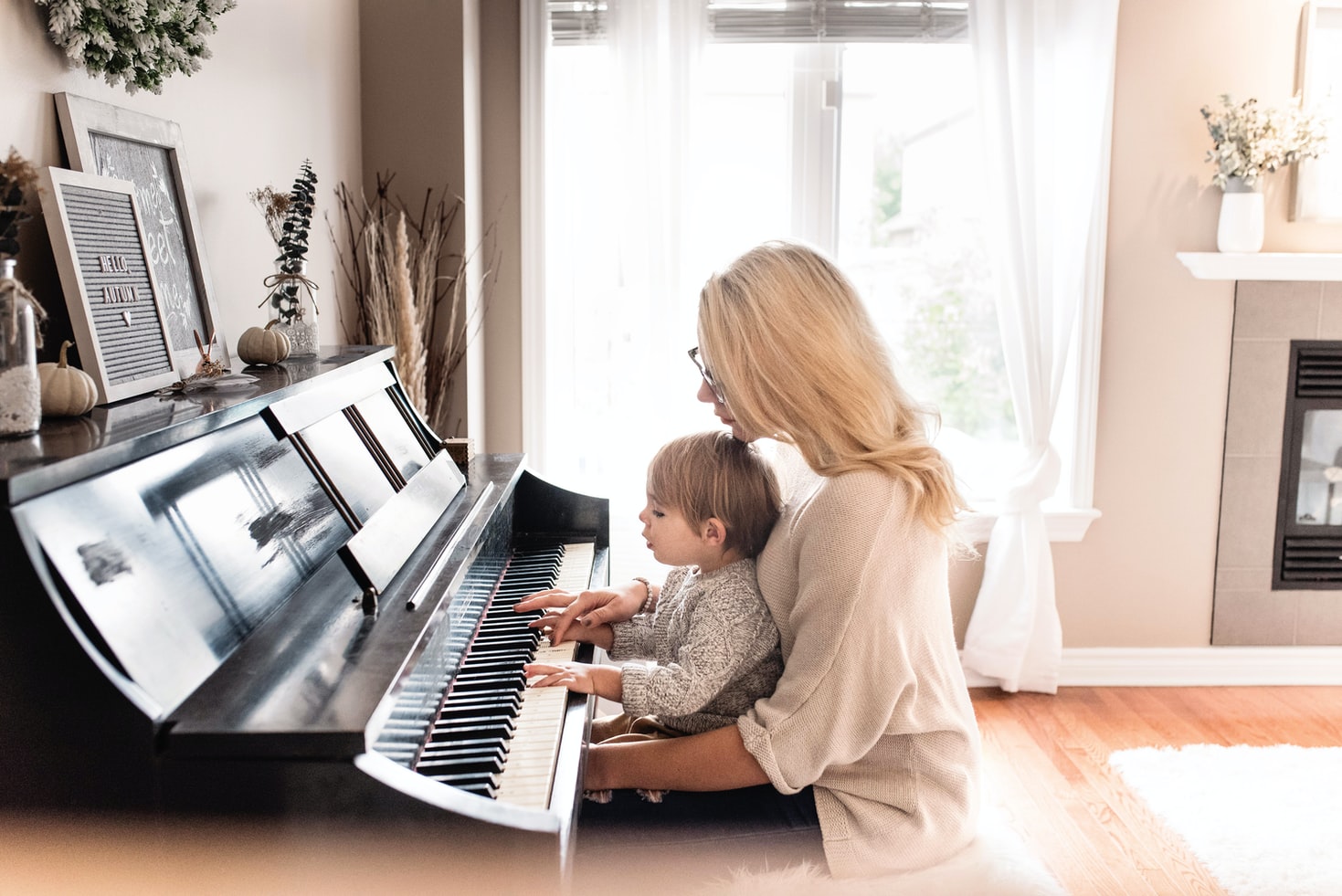Over the last couple of years, adults and children have spent far more time at home than normal. Involuntary lockdowns and remote working have led to adults performing their work duties from spare bedrooms and home offices.
Similarly, schools across the world have suffered temporary closures which left children having to adjust to remote teaching. Many parents have also found themselves getting involved far more with home teaching.
In between academic studies though, there has been room for some creativity as well. Many people, including children, took a keen interest in trying out different instruments during Covid.
Is it possible to learn an instrument at home though, and if so, how do you go about being successful?
Is it feasible to learn an instrument at home?
There is a great link between musical instruments and toddler development, and children from a very young age can get involved in music. Children learn to interact with music early on, and encouragement at home during these early ages is a great idea.
Plenty of individuals believe that musical instruments must be taught by professionals. While it is absolutely true that a music teacher will help a student’s progress immensely, there is nothing wrong with some homeschooling.
How can you learn at home?
If you are interested in some homeschooling music education for your child, then there are many online guides and resources at your disposal. Some of these music websites are run by professional musicians whose goal is to help other people to develop their talents.
A good online music resource will give tips on how to get started, some general advice for beginners, and reviews of instruments. They should even be capable of pointing you towards a teacher if you should need one.
Many music teachers will be happy to visit your home to assist with your child’s learning, and there are some remote options too. Online education has certainly expanded due to all the restrictions coming into place since 2020, but this can be used to your advantage.
Tutorials, and live teachers, are available online to help with any music student’s progress. While some of these websites need to be paid for, others are entirely free.
What is the most suitable age to learn an instrument at home?
Toddlers can get involved in music right from the start. Instruments such as the xylophone can capture a child’s imagination very early on.
While children can start learning an instrument as young as three, many experts believe 5 is a great age to start. Rady Children’s Hospital in San Diego, recommends 5 to 7 years as a good age for formal musical instruction.
This is because a degree of patience is needed, and 5-year-olds can comprehend this more than a restless toddler will. Still, it should be noted that the word ‘formal’ was used here. There is nothing wrong with introducing a child to music at any age.
What instruments can your child learn at home?
One of the appealing things about learning instruments is that there is so little restriction. Obviously, some instruments are too big for small children, and a ukulele is more practical for a small child than a double bass. But, nearly any instrument could be learned at home.
If you are worried about the noise your child will make, and the neighbors complaining, there are ways to get around this too. Electric guitars and keyboards can be played through headphones, and drums can be dampened.
Some instruments are more suited to home learning than others though. Perhaps your child should start with one of these easy to learn instruments for their musical journey:
- Violin
- Guitar
- Keyboards
- Piano
- Ukulele
- Cello
- Flute
- Harmonica
Students with instruments such as the violin, cello, and piano, would all benefit greatly from having a good teacher. There are other instruments such as the flute and ukulele though that may not require so much formal education.
Is there anything else that can help a child learn music at home?
A metronome is a very useful device that might easily be overlooked by anyone home-schooled in music. A metronome will help the beginner student learn about tempo and rhythm, and can be invaluable in development.
When learning an instrument, it is also highly beneficial to learn to read music too. Although it isn’t necessary to read music, it will be invaluable later on when the child wants to compose their own music or collaborate with others.
Summary
Musical education is a very important part of a child’s development. Unfortunately, many school districts have cut funding in these areas as they see it as less important than other academic and sporting pursuits.
However, homeschooling is not only just an option, it might even be a better choice. A report from NHERI, the National Home Education Research Institute shows that children educated at home often score up to 30 percentile points above those students who received public schooling.
Finding a private music teacher to visit your home could lead to your child progressing quickly with their new instrument. If a private teacher is beyond your budget, then there are still many guides and music educational sites on the internet.

